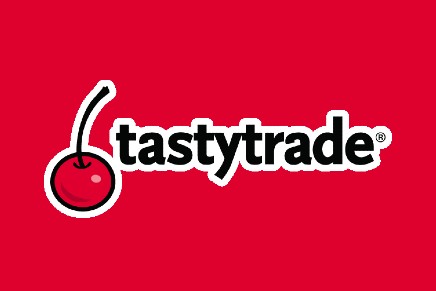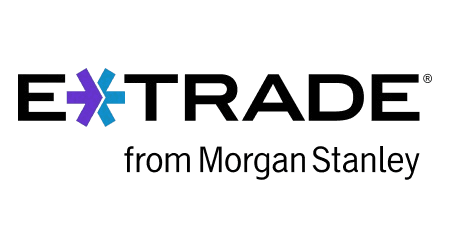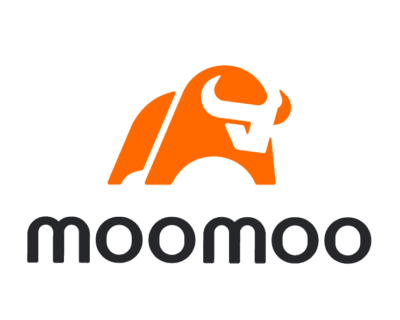At its core, option trading involves contracts that give the holder the right—but not the obligation—to buy or sell an underlying asset at a specific price within a predetermined time frame. Unlike traditional stock trading, options offer a level of flexibility and leverage that can be tailored to a wide range of financial goals, whether it’s hedging, generating income, or speculating on price movements. As more traders seek ways to diversify their portfolios and capitalize on short-term market shifts, the appeal of trading in options continues to grow.
However, mastering the craft of option trading isn’t just about learning how option trading works—it’s also about choosing the right platform. The best option trading platform can dramatically impact your overall performance by offering the right mix of tools, educational content, pricing structure, speed, and usability. An advanced yet intuitive option trading app or desktop software can make a real difference in both execution and learning.
This article takes a deep dive into the best options trading platforms for April 2025, reviewing a range of brokers and tools suited for different levels of experience—from complete novices to seasoned pros. We’ll explore what sets these platforms apart, how to match them to your personal trading style, and what features to prioritize—whether you’re looking for powerful analytics, low commissions, or robust mobile functionality. In the sections that follow, you’ll find platform comparisons, strategic considerations, and insights that will help you make an informed decision in the evolving world of options.
| Best For | Commision | Instruments | Min Dep | Regulated By | Trading Cost | Leverage | Copy Trading | Platforms | Islamic Account | ||
|---|---|---|---|---|---|---|---|---|---|---|---|
| Options traders seeking low costs | Low trading commissions. Excellent educational materials. Good research tools. | Options, stocks, futures, ETFs, cryptocurrencies. | $0 | FINRA, SEC, NFA | Competitive spreads | Up to 1:50 | Tastytrade Platform, mobile app | ||||
| Experienced traders seeking access to international markets | Very low commissions. Wide range of products. Numerous excellent research tools. | Stocks, options, futures, bonds, ETFs, currencies, cryptocurrencies. | $0 | FINRA, SEC, CFTC, FCA | Competitive spreads | Up to 1:50 | Trader Workstation, mobile app | ||||
| Beginner traders seeking simplicity and low costs | Free stock and ETF trading. High interest on idle funds. Fast and easy account setup. | Stocks, options, ETFs. | $0 | FINRA, SEC | No commission on stock and ETF trades | Up to 1:6 | Webull Platform, mobile app | ||||
| Traders seeking convenience and low costs | Low commissions. Excellent trading platforms and research. | Stocks, options, futures, ETFs. | $500 | FINRA, SEC | Competitive spreads | Up to 1:50 | E*TRADE Platform, mobile app | ||||
| Traders seeking free trading and analytics | Free stock and ETF trading. Fast and easy account setup. Quality analytics tools and great educational services. | Stocks, options, ETFs. | $0 | FINRA, SEC | No commission on stock and ETF trades | Up to 1:6 | Moomoo Platform, mobile app |
1. Tastytrade
Tastytrade has carved out a solid reputation as a go-to platform for those who are deeply invested in the world of option trading. Originally developed by the same minds behind Thinkorswim, Tastytrade is built with a laser focus on derivatives, offering a highly specialized environment tailored for traders who rely on precision, flexibility, and real-time data to execute their strategies. Its streamlined interface and commitment to education make it a standout in an increasingly crowded market.
One of Tastytrade’s most compelling attributes is its low commission fee structure, which appeals especially to active traders who place multiple contracts daily. The platform charges competitive rates with capped fees on multi-leg options trades, helping reduce the cost burden for those executing complex positions. This pricing model makes it attractive for traders who prioritize efficiency and volume.
In terms of features, Tastytrade offers a suite of advanced charting tools that provide granular technical analysis capabilities. From volatility analysis to probability cones, the platform delivers data-rich visuals that help traders identify patterns and plan entry and exit points with greater confidence. Complementing this is an extensive catalog of educational resources—ranging from video tutorials to in-depth market commentary—designed not just to teach the basics, but to deepen users’ understanding of market mechanics and option trading strategies.
✅
Pros
- Intuitive and modern interface
- Advanced tools tailored for option trading platforms
- In-depth market analysis and live financial content
❌
Cons
- Limited access to other asset types such as mutual funds or bonds
- Not ideal for those looking to build a diversified long-term portfolio
Best for: Tastytrade is particularly well-suited for active traders who focus primarily on options. Its powerful analytics and cost-effective pricing also make it a strong choice for anyone seeking to refine their strategies without paying a premium.
2. Interactive Brokers
Interactive Brokers (IBKR) stands as a titan in the trading world, widely recognized for its institutional-grade infrastructure and unparalleled market access. With a platform engineered for professionals, IBKR is often regarded as one of the best brokers for option trading by serious investors and financial firms alike. The platform supports a diverse array of assets, but it truly shines when it comes to complex derivatives trading, including multi-leg options strategies.
One of Interactive Brokers’ key strengths is its access to global markets, covering over 150 exchanges in 33 countries. This extensive reach allows traders to implement cross-border strategies and take advantage of international market trends—something few platforms offer at such scale. It’s especially valuable for those who incorporate global volatility or macroeconomic events into their option trading strategy.
In addition to reach, IBKR delivers powerful advanced trading tools such as Risk Navigator, Probability Lab, and customizable algos that help traders simulate potential outcomes and manage risk effectively. The Trader Workstation (TWS) platform is packed with functionality, offering customizable dashboards, real-time monitoring, and precise execution. For those who prefer to trade on the go, the mobile option trading app also mirrors many of the advanced features found on desktop, delivering professional-grade performance in a portable format.
The commission structure at Interactive Brokers is another major draw. While it may not be the absolute cheapest for casual users, it is exceptionally competitive for high-volume traders, with low per-contract fees and tiered pricing that rewards activity. Moreover, there are no hidden fees or platform charges that could erode profits over time.
Pros:
- Industry-leading access to international markets
- Robust analytics and risk management tools
- Tiered pricing model benefits active traders
Cons:
- Platform may feel overwhelming to beginners
- Requires time and effort to master its full capabilities
Best for: Interactive Brokers is ideal for advanced or professional traders who require broad market access and sophisticated trading tools. If your option trading involves high-frequency execution or global strategies, this platform offers the depth and flexibility to support your goals.
3. Webull
Webull has quickly gained popularity as a sleek, modern platform that makes option trading for beginners more accessible than ever. While it started as a stock-focused app, its expansion into the options market has made it a strong contender for users seeking an intuitive and cost-effective trading experience. With a mobile-first approach and commission-free structure, Webull appeals to a generation of traders who value simplicity, speed, and on-the-go access.
One of the standout features of Webull is its $0 commission for options trades—a major advantage for traders who want to avoid fees eating into their profits. This makes it an attractive choice for those testing out various option trading strategies or just beginning to explore how options work, without the financial pressure of high per-trade costs. The ability to place single or multi-leg orders without paying commissions helps new users gain experience while keeping costs low.
Webull also offers advanced charting tools that surpass expectations for a mobile-centric platform. Users can access multiple technical indicators, candlestick patterns, and drawing tools, making it easier to analyze trends and make informed decisions. While it may not match the full analytical depth of some institutional platforms, Webull balances functionality with user experience, especially for those still learning what option trading is and how to apply technical analysis effectively.
Pros:
- $0 commission for options and equities
- Clean, responsive interface optimized for mobile
- Built-in technical indicators and charting features
Cons:
- Customer support can be slow or difficult to reach
- Limited customization compared to more advanced platforms
Best for: Webull is well-suited for cost-conscious traders, particularly beginners who are exploring the basics of option trading and want a mobile-first experience without sacrificing access to core features. It’s a gateway platform for learning and experimenting, especially when paired with free educational content and a low barrier to entry.
4. E*TRADE
E*TRADE brings a well-rounded, feature-rich experience to the world of option trading, making it an appealing choice for investors who value a balance of usability, research capabilities, and comprehensive support. As one of the more established names in the online brokerage space, E*TRADE has built a platform that caters to both newcomers and seasoned traders alike, offering tools that scale as the user’s knowledge and needs evolve.
A key highlight of E*TRADE is its integration of extensive research and analysis tools. From third-party reports to proprietary screeners and market insights, the platform empowers traders to make informed decisions before entering or exiting an options position. This is especially beneficial for users developing more refined option trading strategies that require in-depth market evaluation and timing.
Beyond analytics, E*TRADE offers a strong suite of educational resources that help users understand not just how option trading works, but also how to apply different strategies based on market conditions and personal risk tolerance. The platform includes webinars, articles, and interactive modules tailored to a range of experience levels, making it easier for users to transition from theoretical knowledge to practical application.
Pros:
- Offers a broad range of investment products beyond just options
- In-depth research tools and market data available
- Responsive and knowledgeable customer support
Cons:
- Trading fees can be higher than zero-commission alternatives
- Interface, while powerful, may seem overwhelming to casual users
Best for: ETRADE is ideal for traders who want a balance between powerful research tools, educational support, and access to multiple asset classes. Whether you’re moving beyond option trading courses or simply want a more guided experience, ETRADE delivers a platform that supports growth without sacrificing depth.
5. Moomoo
Moomoo has emerged as a powerful choice among newer option trading platforms, offering a feature-rich environment tailored to active traders who want more from their broker—without paying premium prices. Designed with the technically inclined investor in mind, Moomoo combines a sleek interface with tools typically reserved for professional-grade software, making it a compelling option in 2025 for those who crave real-time precision and market insights.
The platform’s most attractive hook is its zero-commission trades, which extend to both stocks and options. This affordability opens the door to more dynamic strategies, especially for those looking to test or optimize their best option trading strategy without incurring high transaction costs. The cost-effectiveness doesn’t come at the expense of performance, as Moomoo offers a host of analytical tools and order types that give users control over timing, price, and risk management.
One of Moomoo’s standout features is its professional-grade market data, including Level 2 quotes, heatmaps, and institutional tracking. These tools provide a deeper layer of market visibility that intermediate traders can use to assess sentiment, spot unusual volume, and time their entries with more precision. It’s especially beneficial for users transitioning from basic platforms and seeking a middle ground between affordability and power.
Pros:
- No commissions on options and equities
- Includes high-level data and advanced trading features
- Offers customizable layouts and visual tools for better analysis
Cons:
- Research resources are more limited than those of legacy platforms
- Some features may require an initial learning curve
Best for: Moomoo is best suited for intermediate traders who have outgrown beginner apps and are looking to dive deeper into analytical tools and market behavior. It’s a great stepping stone before transitioning to more complex option trading software, offering the right mix of affordability and sophistication.
Factors to Consider When Choosing an Options Trading Platform
Selecting the best option trading platform is a decision that can significantly impact your overall success and experience in the world of trading in option markets. While flashy interfaces and promotional offers might catch your attention, it’s the core functionality and long-term value that truly matter. Below are some critical factors to evaluate before committing to a platform.
Fees and Commissions
One of the first elements to assess is the pricing structure. Some platforms offer zero-commission trading, which is ideal for cost-conscious users, while others may charge per-contract fees that add up over time. For active traders or those testing different option trading strategies, low fees can preserve capital and improve profitability. However, keep in mind that lower cost doesn’t always mean better value—features, data access, and customer support often scale with pricing.
Trading Tools and Features
Whether you’re using a simple or complex option trading strategy, the platform should support your technical and analytical needs. Look for features such as multi-leg order capabilities, real-time data, customizable charting tools, and access to volatility or Greeks analysis. These tools are essential not just for execution, but also for managing risk and spotting opportunities as market conditions shift.
Educational Resources
Especially for those still learning what is trading option or exploring option trading for beginners, educational support can be a game changer. Platforms that provide tutorials, strategy breakdowns, webinars, and demo accounts can accelerate your learning curve. Even seasoned traders benefit from fresh insights and platform-specific tips that keep their approach sharp and informed.
Mobile Usability
In today’s fast-paced trading landscape, having a reliable and intuitive option trading app is no longer optional—it’s essential. A good mobile interface should allow you to execute trades, monitor the market, and analyze positions with the same efficiency as the desktop version. Real-time alerts, synchronized watchlists, and responsive order entry screens all add to the experience of seamless trading on-the-go.
Market Access
Lastly, ensure the platform gives you access to the products and markets you’re interested in. Some platforms specialize in U.S. equities and options, while others offer international market access, which is crucial if your strategy includes global diversification. If you’re aiming to explore niche instruments or emerging markets, platform compatibility becomes even more vital.
Conclusion
As we step into April 2025, traders have a variety of excellent option trading platforms to choose from—each offering unique strengths tailored to different experience levels and trading styles. From Tastytrade’s low-cost, trader-focused environment to Interactive Brokers’ expansive global reach, and Webull’s beginner-friendly pricing, the choices reflect a rapidly evolving market geared toward accessibility and innovation. E*TRADE stands out for its balance of research and support, while Moomoo appeals to those who want advanced features at minimal cost.
Choosing the best option trading platform isn’t about finding the one with the most features—it’s about identifying the one that best aligns with your goals. For some, that means leveraging option trading software packed with analytical depth. For others, it’s about intuitive mobile usability, access to educational resources, or simply the lowest possible commissions.
Before making your decision, consider where you are in your trading journey. Are you still exploring what is option trading, or are you fine-tuning your best option trading strategy? Do you need help getting started through tutorials and demos, or are you ready to engage with advanced tools and global markets?
Ultimately, your ideal platform should empower you to trade confidently, manage risk wisely, and grow steadily—whether you’re a beginner just learning how option trading works or a seasoned trader looking to optimize performance in real time.
Ready to Start Trading? Explore, Compare, and Practice
Before diving into live trades, consider starting with a demo account on one or more of the platforms mentioned above. Most leading option trading platforms offer simulation environments where you can explore tools, test strategies, and build confidence without risking real capital. Whether you’re new to the world of option trading or simply looking for a better fit, these demos are an excellent, risk-free way to evaluate what each platform has to offer.
We also recommend reading in-depth reviews and user feedback to gain more nuanced insights into each platform’s strengths and limitations. The landscape of option trading continues to evolve rapidly—new features, pricing models, and innovations are introduced regularly.
To stay ahead of the curve and make informed decisions, bookmark this guide and check back for updates on the best broker for option trading each month. With the right tools and up-to-date knowledge, you’ll be better equipped to navigate the market and sharpen your trading edge.






